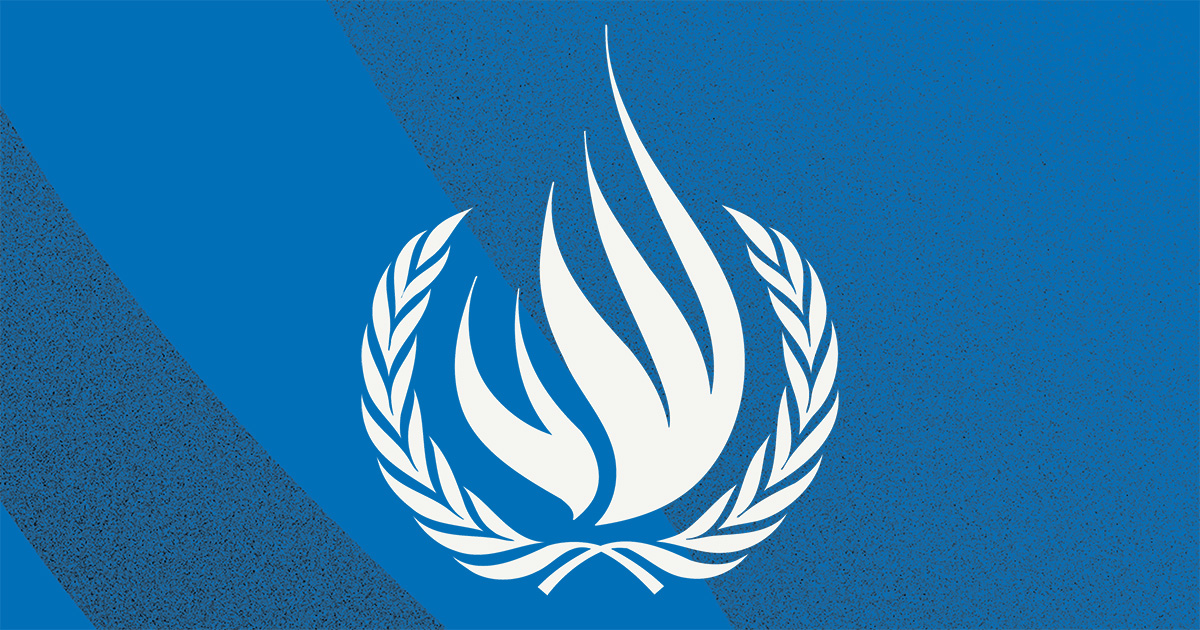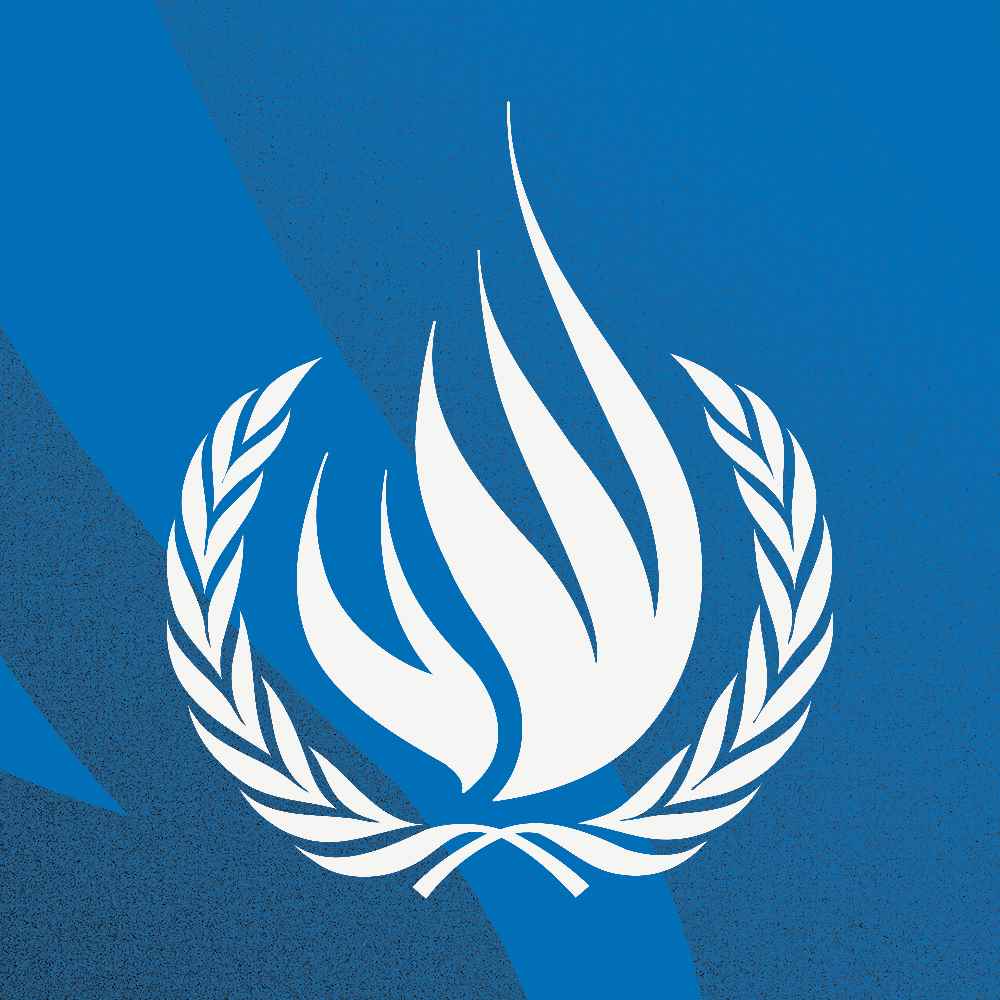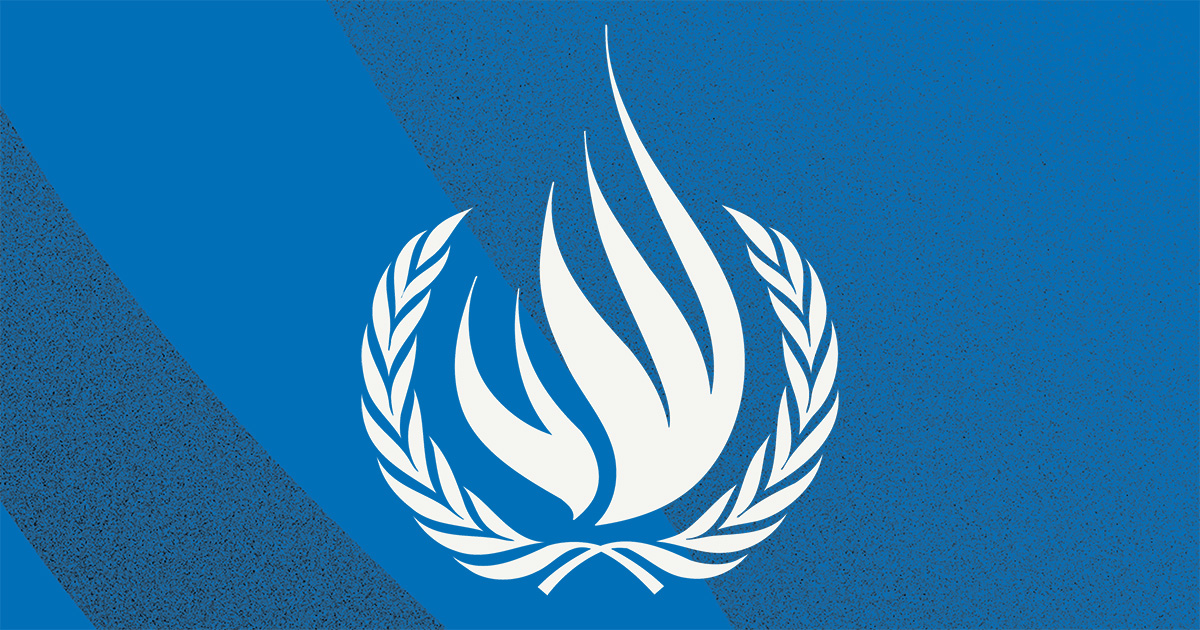
The Committee on the Rights of Persons with Disabilities today opened its twenty-seventh session, during which it will consider the reports of Bangladesh, China, Hong Kong Special Administrative Region of China, Macau Special Administrative Region of China, Indonesia, Japan, Lao People"s Democratic Republic, New Zealand, Republic of Korea and Singapore.
In her opening statement, Dina Rossbacher, Chief, Petitions and Urgent Actions Section, Human Rights Council and Treaty Mechanisms Division, Office of the High Commissioner for Human Rights, said that she was glad that the Committee was back in Geneva to undertake its critical work to promote and protect the rights of persons with disabilities. The 185 ratifications to the Convention on the Rights of Persons with Disabilities showed the commitment of the international community to an inclusive and accessible world. Ms. Rossbacher noted that, during the session, the Committee would hold a public interactive dialogue on the situation of persons with disabilities in Ukraine. Moreover, it would continue to prepare its general comment eight on the right of persons with disabilities to work and employment (article 27). Additionally, it was working on Guidelines on Deinstitutionalisation, including in emergencies.
Speaking at the opening of the session today were representatives of the Anti-Personnel Mine Ban Convention"s Committee on Victim Assistance; International Labour Organization; World Intellectual Property Organization; World Health Organization; International Organization for Migration; United Nations Children’s Fund; International Disability Alliance; Disability Rights Fund; International Communication Rights Alliance; Saraki Foundation; Judiciary of the City of Buenos Aires; Down Syndrome Association of the Argentine Republic; and Disability and Data Partnership, University of York.
Summaries of the public meetings of the Committee can be found here, while webcasts of the public meetings can be found here. The programme of work of the Committee’s twenty-seventh session and other documents related to the session can be found here.
The Committee will next meet in public at 3 p.m. on Wednesday, 17 August, to discuss the situation of persons with disabilities in Ukraine.
Opening Statement
DINA ROSSBACHER, Chief, Petitions and Urgent Actions Section, Human Rights Council and Treaty Mechanisms Division, Office of the High Commissioner for Human Rights, said that she was glad that the Committee was back in Geneva to undertake its critical work to promote and protect the rights of persons with disabilities. She also congratulated the members of the Committee who were re-elected during the fifteenth Conference of States Parties: Ms. Rosemary Kayess, Ms. Gertrude Fefoame, Ms. Amalia Gamio Rios, Ms. Miyeon Kim, and Mr. Markus Schefer. With the results of the election, the composition of the Committee would change beginning 1 January 2023, to 11 women and 7 men among its members. This was the largest female representation in a treaty body after the Committee on the Elimination of Discrimination against Women.
Ms. Rossbacher said the 185 ratifications to the Convention on the Rights of Persons with Disabilities showed the commitment of the international community to an inclusive and accessible world. Since the last session, Equatorial Guinea had ratified the Convention. She noted that the Human Rights Council, during its forty-ninth and fiftieth regular sessions, had adopted several resolutions related to the rights of persons with disabilities. The Conference of States Parties to the Convention on the Rights of Persons with Disabilities, held from 14 to 16 June 2022, had the overarching theme “Building disability-inclusive and participatory societies in the COVID context and beyond”. Ms. Rossbacher congratulated the Committee for its involvement in the Conference. She also thanked the Chair and Committee Experts for their written input to the High-Level Political Forum on Sustainable Development, held in July 2022, which identified key areas that affected the rights of persons with disabilities during the pandemic.
The United Nations Disability Inclusion Strategy was in the third year of its implementation. Ms. Rossbacher said the United Nations was evaluating how disability inclusion and accessibility were implemented in the Organization. Despite advances, there was still much work to do. In May 2022, the United Nations Human Rights Report to the Secretary-General on the implementation of the Disability Inclusion Strategy was published. Ms. Rossbacher also thanked the Chair of the Committee for her tremendous work as Chair of the Chairs of treaty bodies meetings until very recently.
At this session, the Committee would hold dialogues with eight States parties: Bangladesh, China (including Hong Kong Special Administrative Region and Macao Special Administrative Region), Indonesia, Japan, Lao People’s Democratic Republic, New Zealand, Republic of Korea, and Singapore, and examine their reports on the implementation of the Convention. It would also review four individual communications under the Optional Protocol to the Convention against Italy, Australia, United Kingdom and Sweden, including on novel issues such as the withdrawal of life-support for persons with disabilities and recognition of family caregivers of persons with disabilities. The Committee would also have a public interactive dialogue on the situation of persons with disabilities in Ukraine. Moreover, the Committee continued to prepare its general comment eight on the right of persons with disabilities to work and employment (article 27). Additionally, the Committee was working on Guidelines on Deinstitutionalisation, including in emergencies. Ms. Rossbacher wished the Committee success in this important work.
Statement by the Chair of the Committee on her Report on Intersessional Activities
A statement was read out on behalf of ROSEMARY KAYESS, Chair of the Committee on the Rights of Persons with Disabilities, highlighting the intersessional online events she had participated in since the last session, in her capacity as Chair. In the statement, Ms. Kayess reported that she had participated in several informal meetings with treaty body chairs as part of the treaty body strengthening process. These meetings were the precursor to the thirty-fourth Treaty Body Chairs Meeting held from 30 May to 3 June 2022 in New York. The critical outcome of this meeting was to reach consensus on a common way forward on treaty body strengthening, particularly regarding a predictable schedule of review, harmonised working methods and the digital uplift.
She also participated in the Conference of States Parties to the Convention on the Rights of Persons with Disabilities in June in New York. During the Conference, creative approaches to sharing Convention implementation were presented. In the statement, Ms. Kayess acknowledged all candidates who stood for election to the Committee, and warmly welcomed the new members of the Committee who were elected during the Conference. She was particularly encouraged that the Committee had retained its gender parity.
Ms. Kayess also acknowledged the passing of former Committee member Mr. Gabor Gombás. Mr. Gombás was a champion of the rights of persons with disabilities, particularly those with psychosocial disabilities. He had played an integral part in drafting the Convention and general comment one, article twelve (equal representation before the law).
Reports Received in Intersessional Period
The Secretary of the Committee said that since the last session, the Committee had received the initial reports of Romania, Kyrgyzstan, the Federated States of Micronesia, and Zimbabwe; and the combined second to fourth reports of Qatar and Honduras. There were currently 77 reports pending consideration and 19 lists of issues pending adoption. The Committee would need at least six years to deal with this backlog.
Statements on Cooperation by Other United Nations bodies, Special Bodies, Organizations of Persons with Disabilities and Other Civil Society Organizations
Anti-Personnel Mine Ban Convention"s Committee on Victim Assistance said that the Committee was committed to assist States parties in fulfilling their obligations to assist victims of mines and bring their plights to relevant forums. The Committee on Victim Assistance promoted the development of services, infrastructure and policies to address the needs of persons with disabilities, and appreciated the cooperation of the Committee in this regard. Employment was an important pillar of socio-inclusive strategies for victim assistance. The COVID-19 pandemic disproportionately affected persons with disabilities, and it was crucial to ensure that persons with disabilities were afforded equal opportunities. Action 34 of the Oslo Action Plan required States parties to ensure that the needs of mine victims were effectively addressed in line with the relevant provisions of the Convention. With the support of the European Union Council, the Committee on Victim Assistance would hold its third global conference in 2023. The Global Conference would bring together victim assistance experts and other stakeholders to foster cooperation with and empowerment of mine victims and all persons with disabilities.
International Labour Organization said that it had adopted an organization-wide strategy on disability inclusion. Much more attention was now given to persons with disabilities within the Organization, and there was better data available on persons with disabilities. There was unfortunately a 34 per cent gap in the employment rate between persons with and without disabilities. Young people with disabilities were twice as likely to not be in education or employment, and the gap was larger in developing countries. The International Labour Organization was working to support persons with disabilities in gaining digital skills necessary in the modern world of work. It was also promoting the provision of jobs within the green economy to persons with disabilities. The United Nations and other entities were not addressing the effect of the COVID-19 pandemic on persons with disabilities sufficiently. Available data showed that the pandemic severely affected the mental health of young people with disabilities.
World Intellectual Property Organization said that the Marrakesh Treaty to Facilitate Access to Published Works for Persons Who Are Blind, Visually Impaired or Otherwise Print Disabled came into force in 2016. The Treaty had been ratified by 89 contracting parties covering 115 countries. There was still work to be done, as the World Intellectual Property Organization aimed to make this a universal treaty among its 193 Member States. Further, the Organization called on members to transpose the provisions of the treaty into national law. The pandemic had created new obstacles for the print-disabled in accessing titles in educational institutions and libraries. The Accessible Books Consortium was one initiative that sought to boost the number of books in accessible formats and make them available to people around the globe. More than 17,500 accessible educational books had been produced in national languages in 28 countries through funding provided by the Consortium. The Consortium also promoted the production of “born accessible” works by publishers, books that were usable from the start by both the print disabled and sighted persons.
World Health Organization said that the World Health Assembly resolution 74.8 on the Highest Attainable Standard of Health for Persons with Disabilities provided momentum for efforts to promote the inclusion of persons with disabilities in the health sector. The resolution called on the World Health Organization to develop a global report on the health of persons with disabilities. Evidence and preliminary findings had shown that compared to the general population, many persons with disabilities experienced health inequities in terms of premature mortality, higher rates of morbidity and functioning limitations, and that there were several factors behind these inequities that needed to be addressed. Countries should adopt a human rights-based approach to health and strengthen health systems to provide appropriate care for persons with disabilities. A health policy on disability that included disaggregated data collection was needed to support understanding and action to address drivers of inequities for persons with disabilities.
United Nations Children’s Fund said that it was finalising its disability inclusion policy and strategy, which established a vision for 2030 where children with disabilities were empowered and their rights respected. The fourth biennial conference for alternative care for children in Asia reiterated the call for placement of children with disabilities out of residential care. At least 2.7 million children lived in residential care worldwide, including more than 770,000 children in East Asia. Children with disabilities were likely to be abandoned by their families, and disproportionately represented in residential facilities. Children with disabilities were more likely to be left behind in emergency situations, and many institutions were not sufficiently prepared for such situations. The United Nations Children’s Fund was working on supporting emergency preparedness in the East Asia and Pacific region, drafting multisectoral response plans.
International Disability Alliance appreciated the efforts of the Committee in analysing the situation in Ukraine. The Alliance had established a disability-inclusive response that would respond to the entire situation, considering the needs of persons with disabilities. The Alliance celebrated that earlier this year, the Committee of Ministers of the Council of Europe adopted a decision that suspended the adoption of the additional protocol to the Oviedo Convention. Organizations of persons with disabilities and other relevant stakeholders would next provide new instructions to the Steering Committee on Bioethics, including preparing a draft recommendation promoting the use of voluntary measures in mental health. The influential statements made by the Committee in 2018 and 2021 had helped to ensure that international human rights standards were not undermined by a regional body. Civil society would remain vigilant on the continuation of this process under the leadership of the European Disability Forum.
International Communication Rights Alliance said that disability could result in comprehensive communication needs. The Alliance’s review of States party reports highlighted a notable omission of support for people with comprehensive communication needs. In these reports, “communication” typically referred to unidirectional communication to persons with disabilities, often requiring technologies such as computers. Such measures did not sufficiently support interpersonal communication support for persons with diverse needs. Communication needed to be made available in a variety of formats. There were no legal frameworks to uphold measures to improve communication in hospitals. There were also no guidelines that defined the skills and attitude required of staff to ensure access to information for persons with comprehensive communication needs. Communications rights needed to be addressed in all aspects of life in which human action occurred.
Saraki Foundation said that the Foundation had last year presented the idea of the “inclusion dashboard”. The dashboard allowed for indicators to be established based on the provisions of the Convention. The Latin American Network of Persons with Disabilities, the Paraguayan Government, and a member of the Committee were involved in developing the dashboard. It would help ensure that there was less discrimination of persons with disabilities. It was hoped that data would be fully processed by January 2023. Data would be made available to the public in real time. Follow-up to the recommendations issued to each country would be monitored to examine States’ implementation of recommendations. It would be wonderful if the dashboard could be used by the Committee in its examinations and by reporting countries.
A representative of the Judiciary of the City of Buenos Aires said that the Convention had been fully enshrined in the Constitution of Argentina, however, there were still problems in the State. The judiciary had implemented an observatory to intervene in legal proceedings that involved the rights of persons with disabilities. The body ensured that there was a comprehensive approach to disability within judicial cases. It had increased access to the judicial protection network for persons with disabilities. There was also a national programme of assistance for persons with disabilities. However, there had been no progress in terms of technical bodies guaranteeing the inclusion of persons with disabilities within legal proceedings. Efforts had been made in education and training, however, the “medical model” was still used to assess the position of persons with disabilities. Guaranteeing the rights of persons with disabilities was crucial, and as such all the Committee’s concluding observations needed to be taken into consideration.
Down Syndrome Association of the Argentine Republic said that the Association promoted the rights of persons with Down syndrome and persons with disabilities generally in Argentina. A study from the National Statistics Office had found that persons with disabilities in Argentina made up 10 per cent of the total population. The Association had created a database related to persons with Down syndrome. It believed that persons with Down syndrome had the right to work on an equal footing and with the necessary support. It sent resumes to employers and supported employers to hire persons with down syndrome. Colleagues of such persons needed the most support, and solutions needed to be tailor-made for each person and family. The Association had helped to secure employment for over 300 persons and conducted numerous training sessions for companies.
A representative of the Disability and Data Partnership Team, University of York said that it was a disability-led research team. The team was working on developing an information repository for disability advocates. Definitions of disability varied across sectors, and the repository would assist such advocates in navigating this varied information. It allowed for faster access to this information, and allowed for advocates to supply information to develop the repository. The Disability and Data Partnership Team called on the Committee to stay abreast of the development of this repository, and to utilise it in its work.
___________
Produced by the United Nations Information Service in Geneva for use of the information media;
not an official record. English and French versions of our releases are different as they are the product of two separate coverage teams that work independently.










